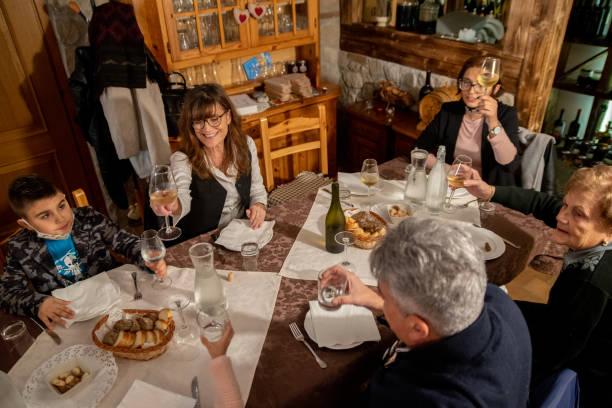In the heart of Italy lies a treasure trove of customs, rituals, and traditions that have been passed down through generations. Among these, none shine brighter or hold more significance than Italian family traditions. Rooted deeply in the rich tapestry of Italian culture, these traditions serve as the cornerstone of family life, fostering bonds that endure through time and tide.
At the very core of Italian identity is the concept of "la famiglia" — the family. Family is not merely a unit of individuals but a cohesive entity woven together by love, loyalty, and shared experiences. From the bustling cities of Rome and Milan to the serene villages of Tuscany and Sicily, the importance of family is unmistakably omnipresent.
One of the most cherished Italian family traditions is the Sunday gathering for pranzo, or lunch. Each week, relatives from near and far come together to share a meal that goes beyond mere sustenance. It's a time for laughter, storytelling, and reconnecting with loved ones. Nonna's homemade pasta, Mama's secret recipes, and Uncle Giuseppe's famous tiramisu are not just culinary delights but symbols of familial love and tradition.
In Italian households, the kitchen is the heart of the home, where generations gather to cook, eat, and celebrate life's milestones. From learning the art of making fresh pasta to mastering the perfect espresso, these culinary traditions are passed down from parent to child, ensuring that the flavors of the past continue to enrich the present.
But it's not just the culinary realm where Italian families excel in preserving tradition. Festivals and religious celebrations play a significant role in Italian culture, providing opportunities for families to come together and honor their heritage. Whether it's the colorful Carnevale in Venice, the solemn processions of Holy Week, or the joyous festivities of Christmas and Easter, these events serve as anchors that bind families across generations.
Beyond the realm of public holidays, Italians also hold dear a plethora of personal family traditions. From the annual summer vacation to the family's seaside villa to the nightly passeggiata, or leisurely stroll, through the neighborhood, these rituals create a sense of continuity and belonging in an ever-changing world.
One poignant example of such a tradition is the Italian wedding. More than just a union between two individuals, it's a celebration that brings together entire families, often spanning several days of feasting, dancing, and merrymaking. From the intricate lace of the bride's gown to the heartfelt toasts of the groom's father, every aspect of the wedding is steeped in tradition and symbolism.
In a world where the pace of life seems to accelerate with each passing day, Italian family traditions serve as a steadfast anchor, reminding us of the importance of connection, community, and heritage. They teach us that amidst the chaos of modernity, there is solace to be found in the timeless rituals of the past.
As we navigate the complexities of the 21st century, let us heed the lessons of Italian family traditions — to cherish our loved ones, preserve our culture, and keep the flame of tradition burning bright for generations to come. After all, in the end, it is our families and the traditions they impart that truly define who we are and where we come from. La famiglia è tutto — family is everything.


